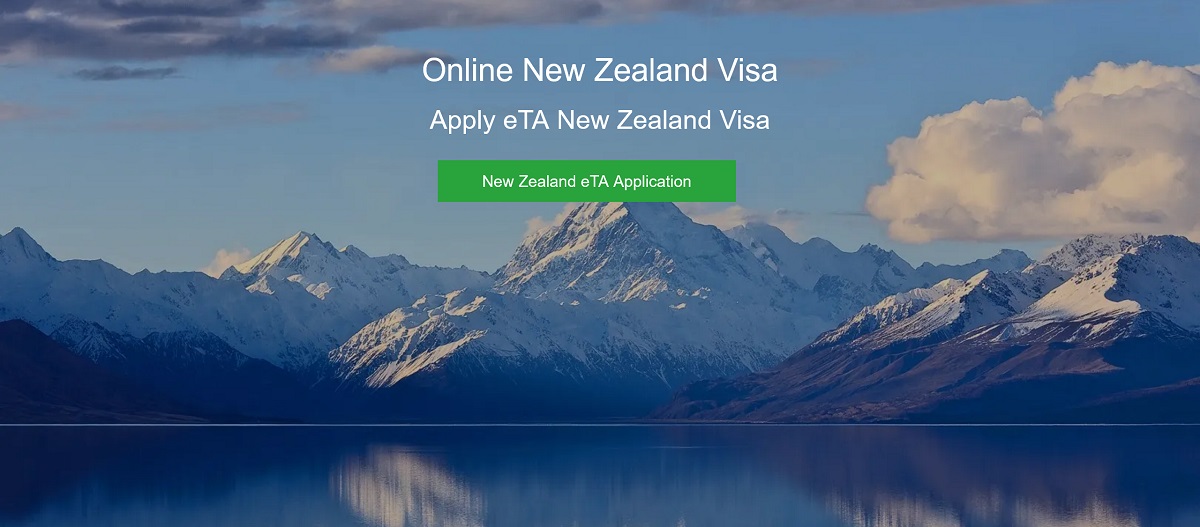NEW ZEALAND VISA FOR CROATIAN CITIZENS
The introduction of the NZeTA program in July 2019 has greatly relaxed visa restrictions for those who qualify. This program allows people to visit New Zealand for different reasons like tourism, work, or a layover without having to get a visa through an embassy, avoiding the complicated visa application procedure. The visa waiver is valid for citizens from 190 nations, Croatian passport holders included. The New Zealand eTA remains valid for two years and permits multiple brief visits. Furthermore, it stays effective for five years for cruise ships and airlines following their certification. Those who meet the necessary criteria can conveniently apply for the New Zealand eTA through an online platform. Travelers with multiple passports should enter New Zealand using the same passport that was used to submit the eTA application because the eTA is electronically linked to a particular passport. Although it is not required by law, travelers are advised to have a printed copy of the NzeTA with them.

REQUIRED DOCUMENTS FOR CITIZENS OF CROATIAN
-
Passport – You need to have a valid passport. However, you need to make sure that the document is valid for at least another 3 months from your date of departure from New Zealand.
-
Digital photo – the photo needs to be as recent as possible and meet all the other guidelines for a passport photo.
-
Means of payment – You can use a credit or a debit card, but you can also pay using PayPal.
-
E-mail address – You will receive the visa via e-mail in PDF format. Do not forget to print a few copies so that you have a spare or two.
NEW ZEALAND VISA FOR ESTONIAN CITIZENS
Estonian citizens must acquire a New Zealand ETA in order to easily visit New Zealand. The NZeTA program, which started in July 2019, permits qualified individuals to visit New Zealand for tourism, business, or transit reasons without requiring a visa application at an embassy. Visa waivers are granted to citizens from 190 countries, allowing them to enter without a visa, including individuals with Estonian citizenship. The New Zealand eTA allows entry for up to 90 days per visit and remains valid for a period of two years. In order to obtain a valid eTA for New Zealand by email, you must pay a processing fee known as the International Visitor Conservation and Tourism Levy (IVL). Because the eTA is electronically linked to a specific passport, travellers with multiple passports should use the same passport that they used to complete the eTA application to go to New Zealand. The most convenient approach for Estonian to obtain their New Zealand ETA is to apply online. The online application process is quick and uncomplicated. Please have all valid original documents ready while filling out the online application form to avoid hurry and errors.
REQUIRED DOCUMENTS FOR ESTONIAN CITIZENS
-
A valid travel document or passport in order to apply for New Zealand Electronic Travel Authority (NZeTA).
-
An online form should be duly filled with correct information.
-
A valid email address to get the approved eTA visa waiver in their Inbox.
-
You can use a credit or debit card to pay for the online application and IVL fees.
NEW ZEALAND VISA FOR GREEK CITIZENS
The NZeTA was implemented in July 2019, allowing qualified people to visit New Zealand for tourism, business, or transit without having to obtain a visa from an embassy. This program is designed for Greek visitors, allowing them to enter New Zealand without a visa. Citizens of Greece, as well as individuals from 190 other countries exempt from visas, must secure visa waivers. The NZeTA permits multiple short-term entries and remains valid for two years. Applicants must pay the International Visitor Conservation and Tourism Levy (IVL) to receive an approved eTA for New Zealand via email. Those planning to stay in New Zealand for an extended period of time, work, or study should contact their nearest New Zealand Embassy or Consulate for more information. Because the eTA is electronically linked to a specific passport, travellers with multiple passports should use the same passport that they used to complete the eTA application to go to New Zealand. The online application process is simple and quick. To avoid rushing and errors, please have all valid original documents ready while filling out the online application form.
REQUIRED DOCUMENTS FOR GREEK CITIZENS
-
A valid travel document or passport in order to apply for New Zealand Electronic Travel Authority (NzeTA).
-
An online form should be duly filled with correct information.
-
A valid email address to get the approved eTA visa waiver in their Inbox.
-
You can use a credit or debit card to pay for the online application and IVL fees.
NEW ZEALAND VISA FOR HUNGARIAN CITIZENS
The New Zealand Electronic Travel Authority (NZeTA) visa waiver program was launched in July 2019. This program allows qualifying individuals to visit New Zealand for tourism, business, or transit reasons without having to obtain a visa from an embassy. Hungarian tourists traveling to New Zealand can benefit from the NZeTA, which is a visa waiver program. Visa exemptions are necessary for nationals of 190 visa-free countries, as well as those with Hungarian passports. The New Zealand eTA is effective for two years and permits multiple entries for brief visits. To obtain an approved eTA for New Zealand via email, applicants are also required to pay a processing fee called the International Visitor Conservation and Tourism Levy (IVL). Those planning to stay in New Zealand for an extended period of time, work, or study should contact their nearest New Zealand Embassy or Consulate for more information. Because the eTA is electronically linked to a specific passport, travellers with multiple passports should use the same passport that they used to complete the eTA application to go to New Zealand. The online application process is simple and quick. To avoid rushing and errors, please have all valid original documents ready while filling out the online application form.
REQUIRED DOCUMENTS FOR HUNGARIAN CITIZENS
-
A valid travel document or passport in order to apply for New Zealand Electronic Travel Authority (NzeTA).
-
An online form should be duly filled with correct information.
-
A valid email address to get the approved eTA visa waiver in their Inbox.
-
You can use a credit or debit card to pay for the online application and IVL fees.
NEW ZEALAND VISA FOR KUWAITI CITIZENS
The NZeTA was launched in July 2019, allowing qualifying people to visit New Zealand for leisure, work, or transit reasons without having to go through the visa application process at an embassy. Kuwaiti citizens must acquire an NZeTA electronic visa waiver before traveling to New Zealand. This rule affects citizens from 190 countries who do not require a visa, including those holding a Kuwaiti passport, and they are required to get visa waivers. The NZeTA can be used for multiple short-term trips within a two-year period. In order to obtain a valid eTA for New Zealand through email, applicants must also make a payment for a processing fee called the International Visitor Conservation and Tourism Levy (IVL). Those planning to stay in New Zealand for an extended period of time, work, or study should contact their nearest New Zealand Embassy or Consulate for more information. Because the eTA is electronically linked to a specific passport, travellers with multiple passports should use the same passport that they used to complete the eTA application to go to New Zealand. The online application process is simple and quick. To avoid rushing and errors, please have all valid original documents ready while filling out the online application form.
REQUIRED DOCUMENTS FOR KUWAITI CITIZENS
-
A valid travel document or passport in order to apply for New Zealand Electronic Travel Authority (NzeTA).
-
An online form should be duly filled with correct information.
-
A valid email address to get the approved eTA visa waiver in their Inbox.
-
You can use a credit or debit card to pay for the online application and IVL fees.
Disclaimer: The views, suggestions, and opinions expressed here are the sole responsibility of the experts. No Insure Information journalist was involved in the writing and production of this article.



